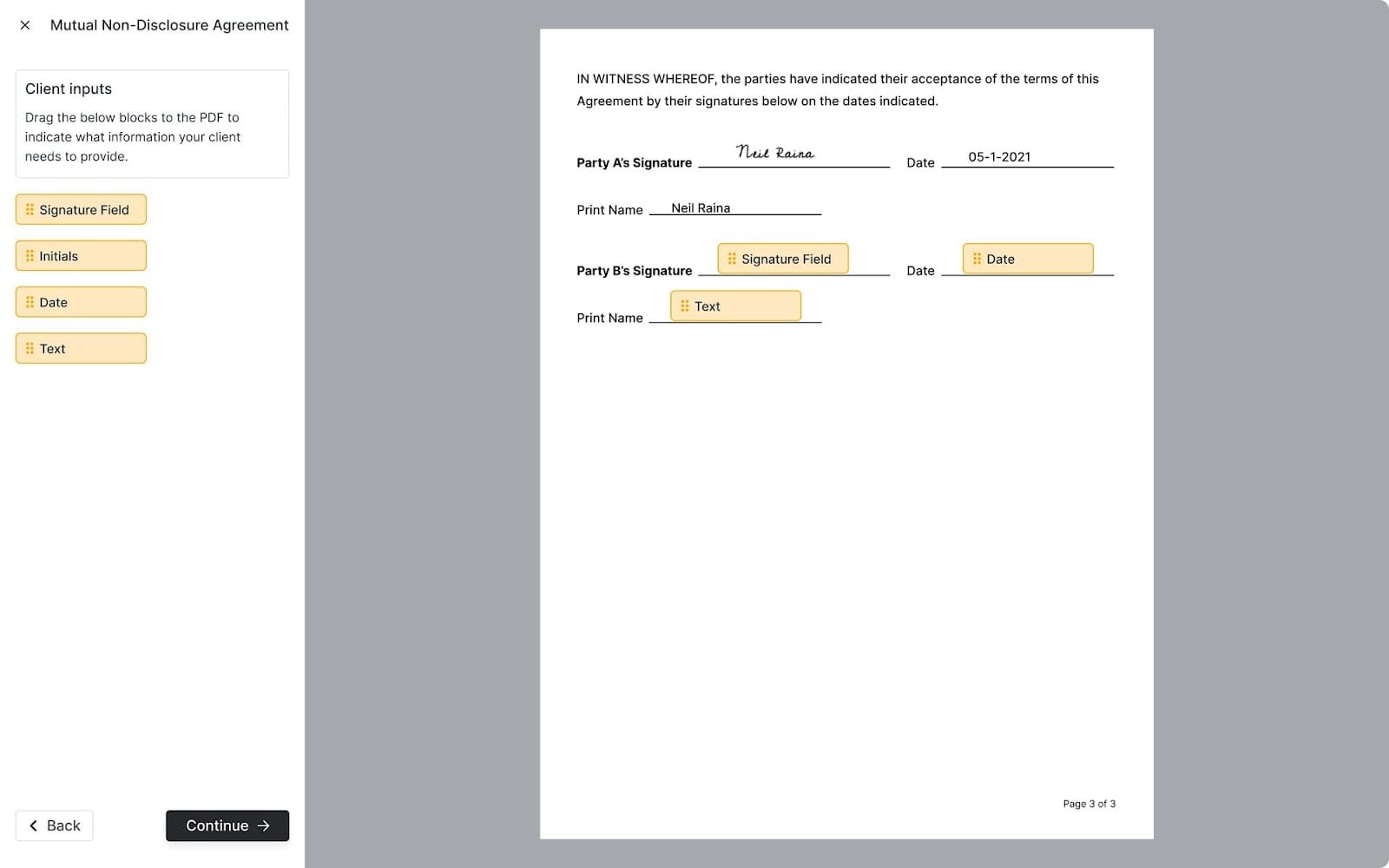How to start a virtual bookkeeping business (In 5 Steps)
You’ve decided to take the leap and start your own virtual bookkeeping business. That’s great, but where do you begin? Learn the basics here.

As an accounting professional or CFO, you may be curious about starting your own accounting or virtual bookkeeping firm. Creating your own small business is more than a full-time job. However, there are many advantages to being a founder and small-business owner. The flexibility to run a company how you want, more intimate collaborations, and the pride of opening your own business are all great reasons to consider opening your own accounting firm.
As you start on your new small business journey and start tossing ideas around with colleagues, the dreaded question of finding a physical location will eventually come up. High rent, logistics, and the shift to remote work have most professionals feeling tentative about in-office working. Luckily, there are accounting offices that are entirely virtual firms allowing for remote work for all employees, whether you plan on offering virtual accounting services or virtual bookkeeping services. Virtual firms have many benefits, but what does starting a virtual CPA firm mean?
What is a virtual bookkeeping business?
A virtual bookkeeping business is a professional service that allows accountants to offer accounting and financial management assistance to clients remotely. This business model deviates from the traditional, physical office setup, opting instead for a fully online or digital structure.
Like a virtual accounting firm, a virtual bookkeeping business operates mainly through internet-based platforms. Instead of a brick-and-mortar location, these firms establish their presence in a virtual setting — be it a satellite office setup or a fully remote hub.
The backbone of a virtual bookkeeping business lies in its strategic use of various software solutions. These tools support and streamline operations, covering tasks ranging from bookkeeping and financial analysis to client communication and data storage. For example, accounting software is used for tracking financial transactions, creating financial reports, and ensuring compliance with tax laws. Communication tools help in maintaining open and clear channels with clients, while secure storage systems, sometimes utilized as an alternative to cloud storage, ensure that sensitive financial information is safely archived.
This flexible and remote setup allows virtual bookkeeping businesses to serve clients from different geographical locations. Furthermore, they offer professionals the advantage of working remotely, contributing to work-life balance while providing cost efficiencies in operation.
The rise of virtual bookkeeping businesses is a testament to the digital age's influence on industries, proving that even sectors as traditional as accounting can successfully adapt and thrive in an online environment.
Is virtual bookkeeping profitable?
Running your own bookkeeping business can be a highly profitable venture, given that you equip yourself with the right know-how and tools. Profitability often comes down to a mix of factors such as the utilization of efficient bookkeeping software, a clear pricing strategy, and a solid network of potential clients and referrals.

The use of powerful bookkeeping software allows for effective management of your clients' financial records. This not only enables you to serve more clients effectively but also reduces overhead costs associated with manual bookkeeping.
Choosing the right business structure, such as a sole proprietorship, partnership, or LLC, is also important. It impacts tax obligations, personal liability, and your ability to raise capital, so it's important to consider the advantages and disadvantages of each type. Depending on your chosen business structure, you may need a business license, and it's always advisable to separate your personal and business finances with a dedicated business bank account.
Pricing your services correctly is critical to profitability. Too high, and you risk alienating potential clients; too low, and you may struggle to cover your costs and turn a profit.
Finally, establishing a strong network is crucial for obtaining potential clients and referrals. The more relationships you build, the wider your client base becomes. Good customer service often results in repeat clients and referrals, driving business growth.
Starting your own bookkeeping business requires knowledge, skills, and dedication. But with the right approach and tools, it can certainly be a profitable venture.
What are the benefits of a virtual bookkeeping firm?
Virtual bookkeeping and accounting firms have a lot of benefits over their physical-office counterparts. While some users have a hard time initially adjusting to using Zoom for meetings and may miss the in-person interactions, there are many ways that virtual firms can offer a healthier work environment for your employees while being beneficial to you as a business owner.
Lower overhead expenses
First and foremost, virtual accounting firms are cost-effective because you are spending (in many cases) no money at all on office rent or utilities. While you may spend some initial money as you shift to offering remote hardware, such as laptops, tablets, or monitors, for your employees, the money you will save will easily make up for these upfront costs.
No wasted time commuting
Commuting can take a significant chunk out of every employee's day. The average one-way commute is 27.6 minutes, according to the U.S. Census Bureau. 27.6 minutes equates to about 240 hours a year spent just commuting to work. In higher-population areas with even longer commutes, that time can be doubled or tripled, turning your traveling into a significant portion of your year. Many people consider all of their time stuck in a car much better spent at home with family at the beginning and end of their day, something made possible with remote work.
Better work-life balance
A Flexjob survey showed that 73% of respondents said they had an improved work-life balance when working from home, including more time with their family, partners, and pets. A Thomson Reuters study saw that 36% of people said that working remotely had a strongly positive effect on their wellbeing, while another 35% said it had a slightly positive impact. Working remotely has proven to reduce stress and improve overall work-life balance, making employees more likely to stay with your company long term and be happier in their roles. Remote work also has shown to reduce mental health-related sick days, meaning employees use PTO for positive vacation experiences that facilitate better work-life balance.
5 steps to start a virtual bookkeeping business
Starting a virtual bookkeeping business requires strategic planning to attract positive cash flow and garner a dedicated client group. Step one is to understand your goals and values.
1. Understanding your goals
The first step in creating any successful business is deciding your goals as a company. By having a clear plan for where you want to be, you can more actively make subgoals and steps to achieve your ideal client base and provide outstanding services.
What services do you want to provide?
Will your accounting firm focus on tax preparation and tax planning? Are you more interested in working with financial reports and general financial data analytics? Deciding what services you want to provide helps you understand what employees you will need to hire, what software you will need to implement, and the overall feasibility of your business plan.
Who do you want to work with?
Picking an ideal client base helps you better market yourself to them. Are you looking to work with large corporations, individuals, or small business clients? Describing in detail who your perfect customer is will help you understand how you need to position yourself in terms of scale and services.
How large do you want to scale to?
Now that you know your ideal services and clients, you may have a better idea of how large you want to scale your company. Knowing ahead of time that you will be planning on expanding can help you set your architecture up for easy scaling in the future.
Do you want to be very hands-on in the next 5 years?
Some accounting firms like being extremely hands-on, something you should consider as a virtual firm. Nailing down exactly how you want your interactions with clients to look can help you decide if entirely virtual is the answer for your company or if a hybrid setup may be more advantageous.
2. Developing your core values
Creating core values in a remote or hybrid virtual bookkeeping business can help develop culture and keep everyone on the same page. Approaching clients and issues with these values in mind can keep your firm providing quality assistance uniformly regardless of where people work.
Your vision
Coming up with a vision statement helps outline your company's goals and what you want to accomplish long-term. Ideally, your vision statement will be one or two sentences that help give an idea to all employees of what goal you are working towards as a company.
What you value
Consider your core values. Is your focus quality work, excellent client relationships, valuable and considerate service, or meticulous analytical services? Once you think about what you value most, it can help you create direction within your vision statement.
What your clients value
What your clients value about your company should be part of your vision as well. Decide what will put you above your competitors, whether personal one-on-one support or exceedingly punctual problem resolution.
3. Create efficient remote workspaces
Making sure your home workspaces are efficient is vital to creating a positive remote experience. Building a tech stack that best fits your company's needs and supports hardware and equipment needs is essential to facilitating happy employees.
Home office
Having a healthy home office is step one in having a positive, effective remote workspace. There are many ways that you can make a home office feel comfortable. We suggest the following when setting up a remote office:
- Pick a dedicated space to promote privacy when needed
- Choose appropriate lighting for your home office space
- Consider noise when picking an area for your desk
- Surround yourself with inspiration
- Make the office space your own through customization
- Add green spaces to your home office to increase productivity and lower stress
- Set up ergonomic equipment such as a desk, chair, and keyboard
- Consider other equipment needs such as internet, routers, headsets, webcams, whiteboards, etc.
For your team
When helping your team set up their ideal workspaces, consider the hardware they will need. Fully remote teams also won't always be in their homes and may benefit from co-working spaces or areas where they can host meetings with clients.
Equipment stipends
Providing stipends for employee equipment can help everyone gain access to the tools they need to work remotely. Never assume that all employees will have a functioning computer at home or all of the tools they need to succeed. Identify hardware needs and make them accessible to those who need them.
Co-working spaces
Sometimes your employees may prefer to co-work or might need to meet with clients. In these cases, consider providing access to different co-working spaces, which have become more popular due to the increased popularity of remote work. Some virtual firms take advantage of public co-working spaces, while others rent specific spaces for their employees to use. Still, others provide a remote working stipend to be used as the employee prefers. Remember to be considerate of employee and client communication preferences, as virtual communications can sometimes cause misunderstandings and unhealthy work/life balance. Some clients and employees prefer voice or video to make introductions and communicate, and co-working spaces may be great to help create that connection.
4. Consider data security
Remote work comes with an increase in risk for data security. When using mobile devices and laptops for work, it is much easier for devices to be stolen or hacked. Keep a robust data security policy in place for employees, and plan for disaster ahead of time. By taking precautions and having actionable steps for when something does happen, you will be able to prevent large-scale damage to your company.
5. Choose the right productivity tools
Picking the right tech stack and productivity tools helps your team excel. Working remotely can be equally or even more collaborative and efficient if you use the right tools that can help with automation and project management.
Project management software
Implementing project management software allows your whole team to be on the same page. Assigning tasks is easy and visual, and you can even automate your workflow to send reminders directly to assignees. Tracking productivity is something that many remote companies struggle with, and excellent project management software is the key to ensuring work is getting done by your employees.
Messaging and conferencing software
Virtual meetings and instant messaging software help employees stay just as connected as if they were in the office. While your workers may not be chatting around the water cooler, they will be keeping up with each other by sending quick meeting invites to get in touch or through messaging systems. Some companies have increased significantly in popularity over the pandemic, such as Zoom, Microsoft Teams, and Slack. Messaging and video functions can also come rolled into other products that you may acquire in your tech stack.
eSignature collection software
eSignatures are going to be a large part of your firm if you plan on working entirely remote. Finding software that can help you collect client signatures will save you time by not seeing every customer in person and will streamline your workflow.

Streamline workflows with eSignature collections.
Client Portal and CRM
Having a client portal and CRM can help your employees track projects and clients efficiently. Good CRM technology will help your team stay on top of critical deliverables. A great client portal keeps your employees from having to do as much footwork to collect forms and information for your customers.

Assembly is a CRM, client portal, and all-in-one commerce solution, including billing and invoicing, file sharing, eSignature collection, messaging, client intake form collection, invoicing, and accounting, while also providing a home for your knowledge base. Assembly packages all of its features into a streamlined, custom-brand-able experience so that clients feel secure using your client portal. Picking client management software like Assembly keeps your tech stack uncomplicated by hosting most of your needed software under one umbrella.
Establishing a good remote culture
Creating a positive remote culture can be difficult for those who don't have prior experience. Company culture is what helps motivate employees and makes them feel good about their employer. Remote flexibility will help your workers feel trusted and improve morale, but having a quality remote culture is also crucial to happy employees. A Randstad report saw that 58% of employees have left a job or would consider leaving if there was a negative office culture. Additionally, a Gallup poll reported that having a positive culture that brings in high-talent leads to 33% higher revenue. With a good culture being so crucial, how do you foster it in a remote environment?
GitLab is a great case study for positive remote work structures and cultures. As they moved into remote working, they documented a detailed guide on approaching the challenges they faced within a remote working environment. GitLab talks about the importance of displaying your values and reinforcing them in a place where everyone can access them. Gratitude and transparency are two things that GitLab has found vital in its remote working, and they encourage showcasing those who are great cultural ambassadors. You can learn more about their building culture here when they talk about how essential intentionality is to their methods. Following GitLab's positive case study and others can help give you some initial ideas on how to foster company culture and values even when not under the same roof.
Conclusion
As remote work becomes more and more prevalent, now is a great time to consider starting your own virtual bookkeeping company. The allure of flexible work schedules, heightened productivity, and reduced startup costs make this an opportune moment to venture into this thriving field. As you begin, make sure you outline clear business objectives and values to form a robust foundation for your venture.
Don’t get caught up in selecting a catchy and relevant business name from the start. First, make sure you learn to productize your services and identify your ideal type of client. Then, you can make sure your business entity type is carefully chosen, taking into account tax implications, potential liabilities, and compliance with the IRS. Incorporate reliable business insurance to safeguard your enterprise against unforeseen challenges.
To help you network and find more clients, you can also consider investing in professional business cards and fostering a dynamic presence on social media platforms, particularly LinkedIn, to attract your ideal clients online. This will increase the chances of gaining your first client and continue to attract new clients over time.
Also, make sure you are well equipped to handle essential financial statements such as balance sheets and income statements, as this will be a core aspect of your service offering. Prioritize the establishment of a comprehensive client onboarding process to secure bookkeeping clients swiftly and efficiently.
Remember, nurturing a strong remote company culture from the get-go is vital for team cohesion and overall success. As you navigate the course of providing virtual bookkeeping services, remember to stay updated with market trends and leverage these to stay ahead of competitors. With the right planning and execution, your virtual bookkeeping business is well-positioned for success!

